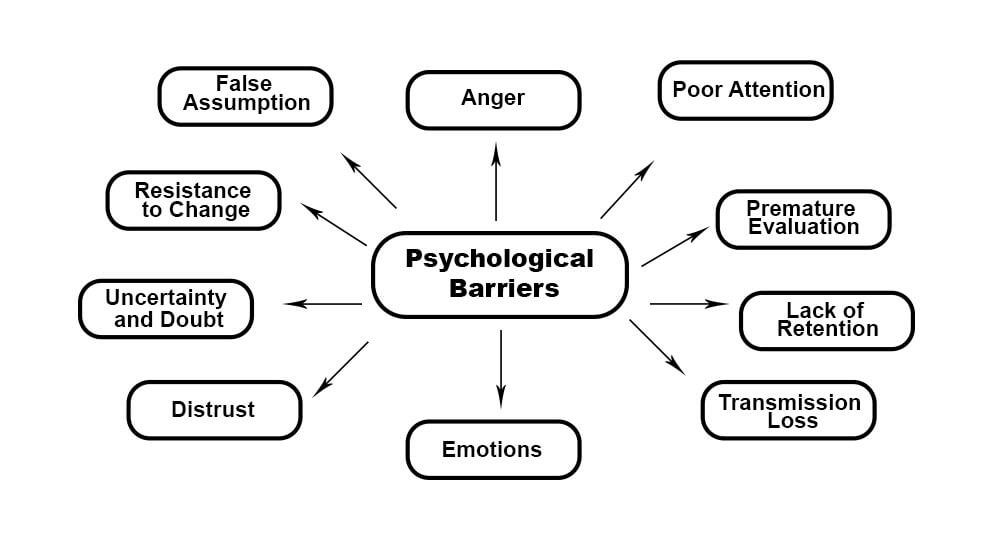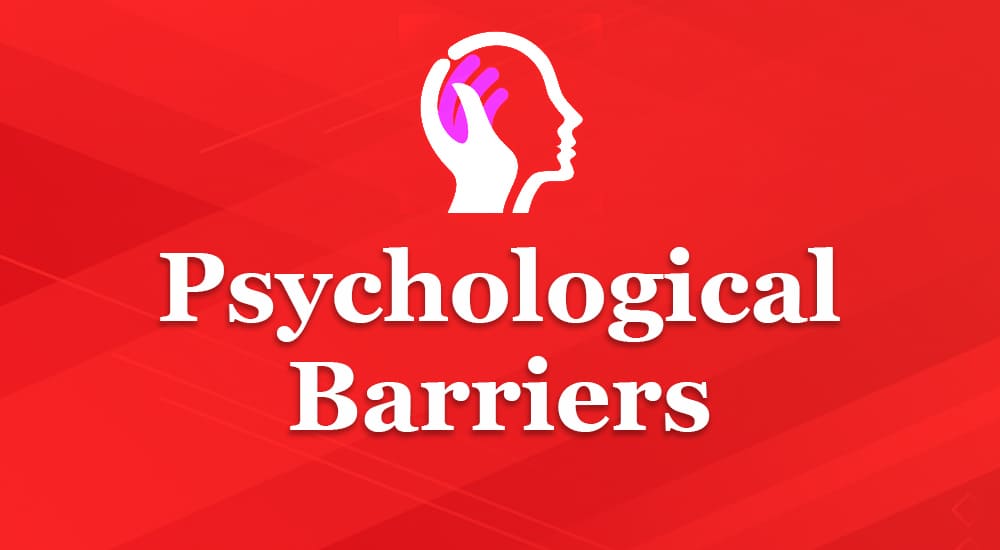Definition: In decision-making and communication, psychological barriers act as mental roadblocks. Such barriers impair an individual’s ability to make informed decisions and hinder effective communication. Often called emotional barriers, these psychological impediments have gained attention from reputable institutions like the Project Management Institute (PMI, USA) and the American Psychological Association.
Types of Psychological Barriers

- Poor Attention
- Premature Evaluation
- Lack of Retention
- Transmission Loss
- Emotions
- Distrust
- Uncertainty and Doubt
- Resistance to Change
- False Assumption
- Anger
- Poor Attention: In a digital age with constant notifications and distractions, attention spans have diminished. The inability to focus during crucial conversations means vital information gets overlooked. As highlighted by a report from the U.S. Department of Health & Human Services, attention plays a pivotal role in comprehension and feedback.
- Premature Evaluation: As the American pace of life hastens, many individuals form conclusions without fully processing the information. As noted by PMI, this tendency can hamper effective communication, especially in high-stakes situations.
- Lack of Retention: Despite advancements in educational methodologies, retention remains a challenge. The National Institute of Mental Health emphasizes the importance of memory retention in effective decision-making.
- Transmission Loss: A common pitfall in verbal exchanges, especially in today’s virtual settings, is the unintentional omission of information, leading to ‘transmission loss.’
- Emotions: From the euphoria of joy to the turbulence of anger, emotions profoundly influence reactions and decisions. Recognizing and managing these emotional states are vital for coherent communication.
- Distrust: A breakdown in trust is detrimental to any relationship. For effective communication to occur, mutual trust is indispensable, a sentiment echoed by American leadership training programs.
- Uncertainty and Doubt: In the words of the American Management Association, “Certainty breeds confidence.” Doubts and uncertainties, if not addressed, can cripple decision-making.
- Resistance to Change: A common barrier observed in American corporate culture, resistance to change stems from an innate fear of the unknown.
- False Assumptions: Assumptions, while foundational, can be misleading. Effective communicators ensure clarity to avoid pitfalls associated with false assumptions.
- Anger: A powerful and often unpredictable emotion, anger can rapidly disrupt effective communication. Recognizing and addressing this emotion is essential to sustain constructive conversations.
Conclusion
Psychological barriers, deeply rooted in human behavior, can be intricate and multifaceted. Overcoming these barriers necessitates self-awareness, understanding, and proactive strategies. As posited by PMI, effective communication, devoid of these barriers, is the cornerstone of successful project management and interpersonal relationships. Thus, recognizing and addressing these barriers is paramount for professionals and individuals.

Good work done